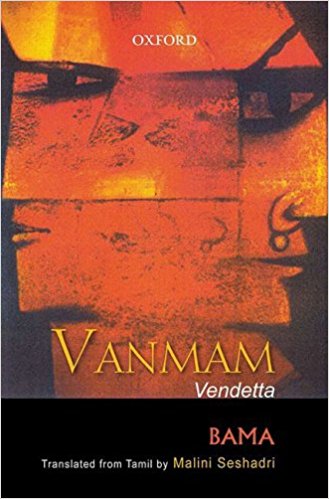Bama’s Vanmam is in many ways a marked departure from her earlier works Karukku and Sangati. Moving away from her earlier autobiographical mode Vanmam steers clear of the familiar confessional, conversational tone and adopts a linear, descriptive, omniscient narrative. The narrative is less impassioned, less dramatic and often dull as compared to Bama’s earlier works. Another marked characteristic of Bama’s writing, her wit and bouncy humour, the celebratory resilience and earthy vigour of her characters and their vocabulary is also not evident in Vanmam. The self-effacing, omniscient narrator is also an implicated participant as evident in the pronounced empathy for Parayar victimhood in the unceasing strife between Pallars and Parayars that forms the subject of this novel. Bama’s Vanmam raises an important aspect of dalit life that has been less recognized and little acknowledged in dalit writings in Tamil and dalit studies at large. The fixing of dalit as a homogenous, univocal category has largely governed the critical perspective on dalit literary discourse in the last two decades.
This inevitably led to easy villification of dalits and their writing whenever intra-dalit strife took place or was written about. Even as dalits were able to bargain better in the political domain, they were constrained to erase their cultural, community or vocation specific distinctiveness—aspects that lent them individuality and self-esteem. In the late 1990s, dalit writers began to display a sharper and more candid self-appraisal of dalit subjectivity in the context of plurality and cultural/religious diversity amongst dalits.

